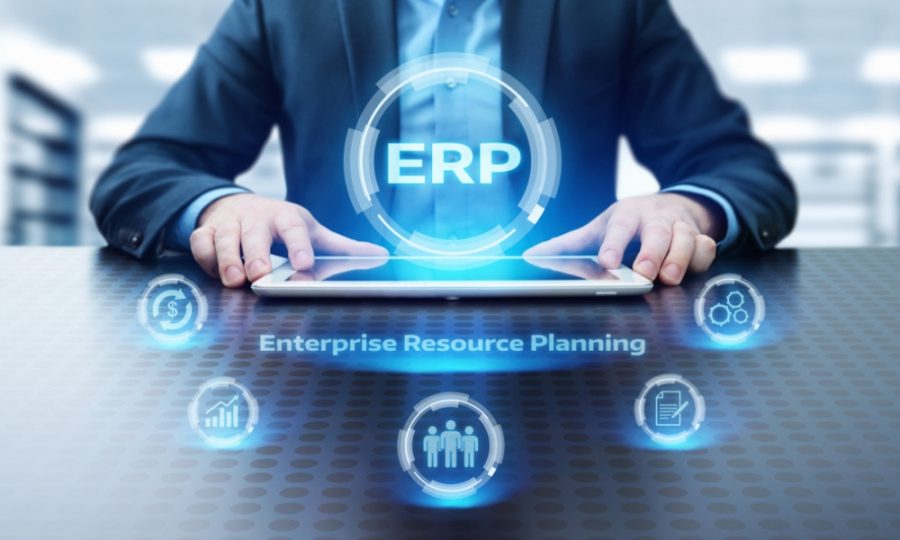Why Using An ERP Solution For Shipping Industry?

Every company has specific demands according to its field of operation. For companies responsible for the transportation of cargo and goods, that is, logistics companies, the responsibility can be much higher and will probably require an ERP for logistics.
It is essential to understand the importance of implementing a solution that brings organization and fluidity to business processes. After all, we all know about the difficulties that transport companies have daily.
Follow the reading and find out what is an ERP system for logistics and transportation. Discover the concept and know its differentials to stimulate the success of your business operations!
If you know little about how an ERP system works, don’t worry, as we’ve already talked about the topic, and you can check it out.
Through a specific system developed to meet the logistics requirements, the manager starts to monitor vital processes, such as issuing different documents, costs, and expenses, fleet control, and customer histories, among many other obligations.
One of the main advantages of ERP for logistics is basically the same that companies from different niches obtain. In other words, this system brings the necessary integration of all information to cargo transportation companies.
In this way, all departments can share their data and pass on vital information in an organized and efficient manner. You can find the best options for CMS Development Services there.
Let’s assume the following scenario: the sector responsible for fleet management needs agility and time to transmit its demands. Therefore, the ERP for logistics allows this sector to transmit to the sales department, such as the need to obtain parts for the maintenance of the truck fleet.
Without a doubt, ERP’s logistics goal is the same as in a company that develops management software. Therefore, we can define that this tool acts in the organization and optimizes the main processes of a logistics and transport company.
This system can also record information regarding customers, employees, suppliers, the purchasing and sales sector, products, payments, and taxes.
It may even seem that a management system makes the same benefits possible for every type of company, but when we analyze the universe of transport and logistics in Brazil, ERP is essential to increase the company’s competitiveness and subsequent success. This service is one of the reasons to upgrade the ERP system.
Undoubtedly, one of the main bottlenecks of a logistics company is precisely to control its vehicle fleet. It is also essential to maintain preventive maintenance, possible repairs, periodic maintenance, and control of the fuel consumed.
Thus, the fleet control module provides the manager with total control of these obligations. This management is essential to promote good practices, as vehicles are not always part of the company’s fleet, that is, they are outsourced and need more rigors in their management.
In this way, the ERP for logistics acts to reassure the company’s management, as it practically eliminates possible errors in the daily issuance of these documents. After all, the system has all the information and automatically issues these guides.
The TMS system (Transportation Management Systems) or simply, Transportation Management is specific and aims to regulate some activities related to cargo transfer, such as:
Whoever works with logistics knows the importance of optimizing time and work. And look, in this specific case, we are not even talking only about deliveries. Every company, regardless of size, needs to have all its sectors integrated, from finance to tax or billing to Human Resources, through workshops and warehouses. All of this, which until recently seemed to generate a lot of headaches for managers today, is facilitated through technology and intelligent systems. For this reason, we prepared this post precisely to show the importance and the need for an ERP for carriers that aim to improve their internal processes.
Do you want to understand a little more about how an integrated system can bring real and fast benefits to your business, leveraging the growth of your company? So, read through to the end and take note of the tips we’ve separated. Check out!
Even if things are progressing in your company without a management system, tasks and communication could undoubtedly be even more efficient and, consequently, your teams would be more productive. The point is to show that, every day, technology is present in the market and, who does not follow the trends and speed of this evolution, may be doomed to delay and obsolete processes.
So, even if you believe that an ERP for carriers is only useful in large corporations, check the list of some advantages that such a system can provide to your business, regardless of its size. Come on!
The primary role of an ERP for carriers is to centralize on a single platform, information, and data generated by the sectors. This facilitates the view of managers as a whole, enabling the creation of KPIs (performance indicators), decision making, and, mainly, facilitates the communication and resolution of possible operational problems.
Later on, we will detail how this integration is carried out, and the principal sectors are benefiting from such a management system. Read on to find out more!
As much as some carriers, especially smaller ones, insist on maintaining communication in a direct and personal way, it is undeniable that there is a digital transformation in the logistics sector, enabling and bringing much more modern and effective alternatives necessarily expensive for process management.
Every major transportation company manages simultaneous processes, such as fleet management and stocking its items. Many companies encourage the development of bottlenecks, as they do not define a specific logistics department to serve such activities. Therefore, the ERP system must enable a practical module to automate logistics operations effectively. Thus, in an organized way, it is possible to perform truly optimized and efficient processes. We hope to have presented the primary information about ERP for logistics. Understanding its indispensability is the differential for a company that aims to transport its cargo successfully!
